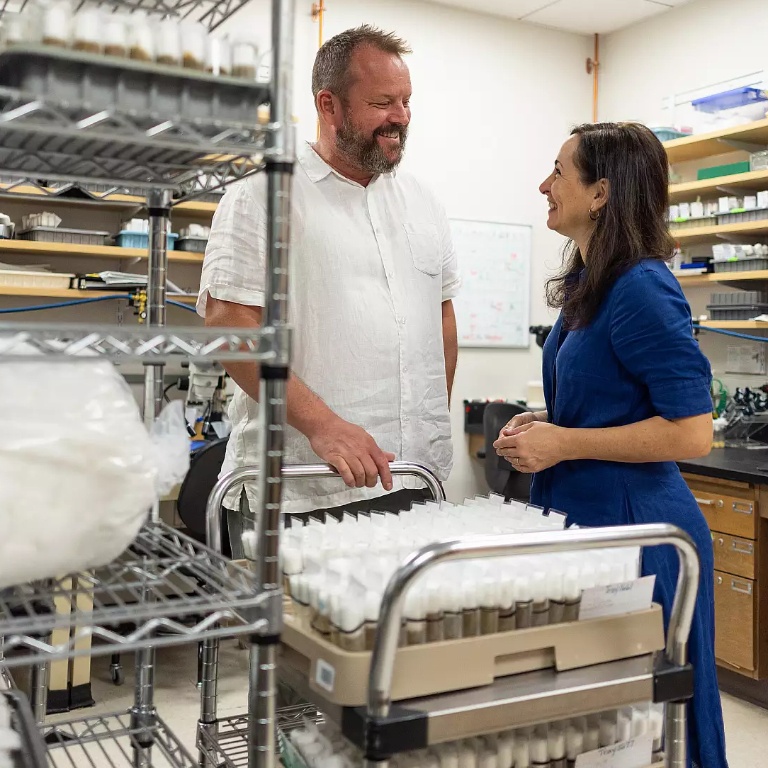Circadian rhythms — 24-hour internal clocks that exist within the brains of all people and animals — are essential to human health. Not only do they tell us when to wake up and go to sleep; these biological clocks play a critical role in ensuring that the body’s essential functions occur at the proper time each day.
Several factors may disrupt circadian rhythms, including the environment, which can have both short- and long-term health implications. Orie Shafer and Maria de la Paz Fernandez, married neuroscientists who study these factors, recently arrived at Indiana University to expand their research programs and increase understanding of how the brain’s clock works.

 The College of Arts
The College of Arts